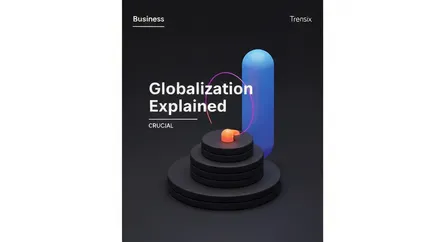Business
Globalization Explained

Explore globalization, the process of global integration of economies, societies, and cultures driven by trade, technology, and investment flows.
What is it?
Globalization is the process of interaction and integration among people, companies, and governments worldwide. It describes the increasing interconnectedness of the world's economies, cultures, and populations. This complex phenomenon is driven by international trade and investment, aided by information technology. Essentially, it breaks down international barriers, allowing goods, services, capital, and ideas to flow more freely across borders, creating a more integrated global marketplace.
Why is it trending?
Globalization remains a hot topic due to ongoing shifts in the global landscape. While decades of reduced trade barriers and technological advances accelerated it, recent events like the COVID-19 pandemic and geopolitical tensions have sparked debates about 'deglobalization' and supply chain resilience. Businesses and governments are re-evaluating their reliance on global networks, leading to discussions about friend-shoring and reshoring. This tension between deep-rooted economic interdependence and new protectionist sentiments keeps globalization at the forefront of financial and political news.
How does it affect people?
Globalization impacts daily life profoundly. For consumers, it often means access to a wider variety of goods at lower prices due to international competition. However, it can also lead to job displacement in certain domestic industries as companies move manufacturing to lower-cost countries. It fuels economic growth in developing nations but can also exacerbate income inequality globally. Furthermore, it facilitates cultural exchange, spreading ideas and traditions, but also raises concerns about the dominance of certain cultures and the erosion of local identities.